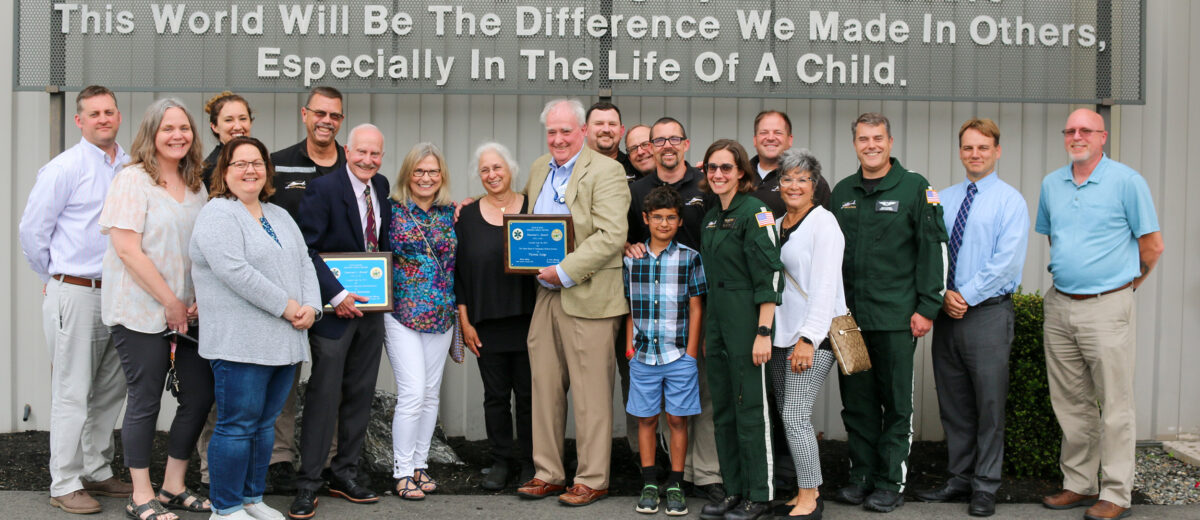Tom Judge: Vision, Innovation, and Leadership
Tom Judge is the founding executive director of LifeFlight of Maine. In October 2023, he stepped back from this role to serve LifeFlight and the people of Maine in other ways.
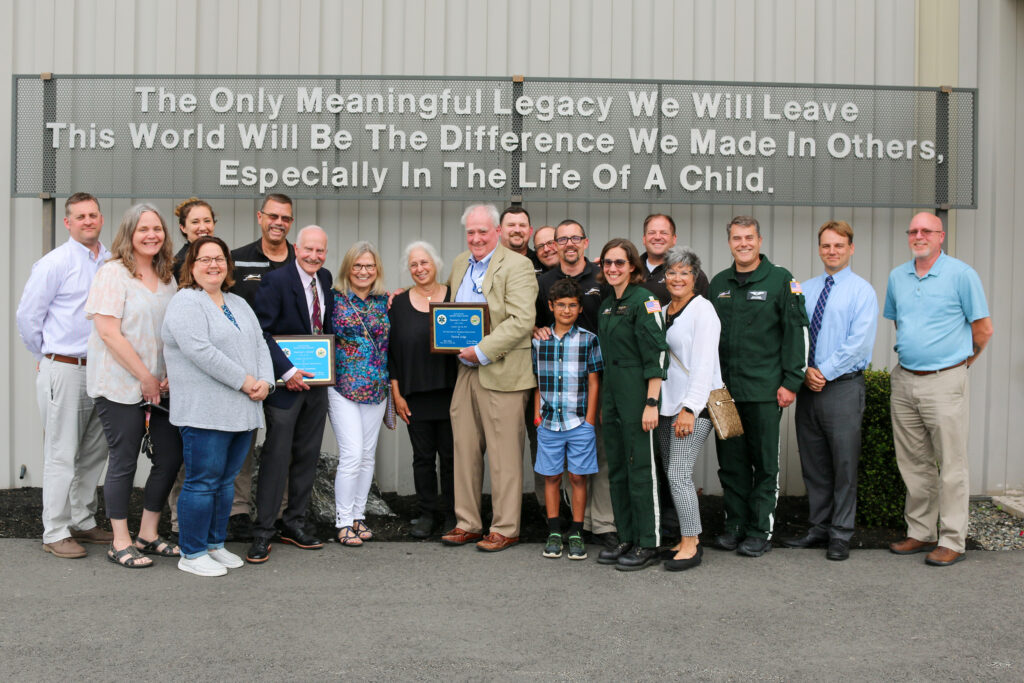
by Jesse Ellison
This article appeared in the October 2023 issue of Dispatches.
Long before LifeFlight even existed, Tom Judge was a fiddle player in a folk band called Different Shoes. His bandmates included a weaver, a hay farmer cum anthropology professor, and a woman named Pixie who ran a day care center on her farm. With records on Rounder, they toured the country playing folk clubs, coffee houses, and festivals, often with iconic maritime musician Gordon Bok.
Recently, Judge, who still plays the fiddle, was thinking about the role of music, and thinking specifically about a song they’d recorded called “Tree of Life,” whose chorus is a refrain that ties stitches to lives. It’s about the ties that bind us together in community. For Judge, a long time EMT and paramedic, there is also a “slender thread” we’re all holding onto that connects us as human beings. In an unexpected moment the thread can break. Mending the tear and restitching that thread is the heart of emergency medicine, and LifeFlight is one thread in the tapestry of healthcare in Maine. Judge was thinking about all of this because, as he steps back from twenty-five years of being executive director of Maine’s air ambulance service, he was reflecting, in his characteristically both pragmatic and philosophical way, on a career that’s included fields as disparate as folk music, progressive early childhood education, writing, carpentry, and emergency medicine. In a way they’re all the same thing, he insists — they’re all about finding ways to grab ahold of that thread and build and strengthen community.
His was, as you’ve likely gathered, a fairly non- linear path. In the 1970’s Judge was working with adjudicated youth in New Hampshire as part of college. After an experience in which a student of his got stabbed in the face during a camping trip in the mountains and he only knew the barest of emergency first aid, he’d said to himself, “never again will I put myself in that situation,” and decided to become a paramedic. After finishing school Judge moved to Maine and started working with Head Start and volunteering for the ambulance and fire department in St. George. Having put himself through college as a carpenter, eventually he started a design build construction company, Harbor Builders, which is still around and thriving in the midcoast area.
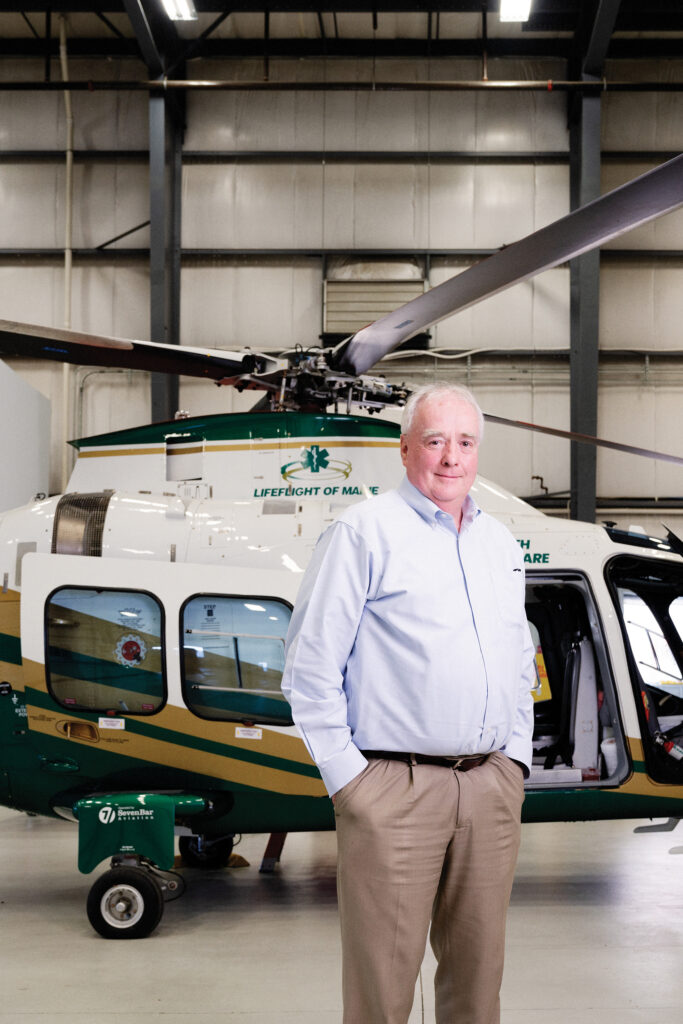
But then in the 1990s, having already done a stint teaching in the National Ambulance Training Center in Dublin, Ireland, a friend and mentor told him “the world cannot afford for you to build any more houses” and suggested he apply to a public policy fellowship program that would bring him to the UK to work in a research center in Sheffield, the Scottish National Ambulance Service, and the Kings Fund, working on the interface between emergency and primary care in rural areas. “That was when I had to quit all my other jobs,” he jokes.
The experience, he says, “opened his world” to examining the “urban/rural paradox” when it comes to emergency health services, and the fact that the economics of the endeavor are upside-down, with the most rural places often in need of the most sophisticated care. When he returned from the Atlantic Fellowship, he was asked to helm a project that would bring air ambulance service to Maine, one that would have to follow in the shadow of a short-lived emergency air program that had ended in tragedy. At the time he took the position, one of the local papers ran an editorial about the new program that argued, “haven’t we already lost enough lives?”
“I used to tell him we can’t save everybody, and Tom’s words would be ‘Why not?’ If there was someone that we might have saved with better resources and better training, then we ought to do that. We needed to go the extra mile.”
– Miles Theeman, former president of Affiliated Healthcare Systems and LifeFlight of Maine Steering Committee member
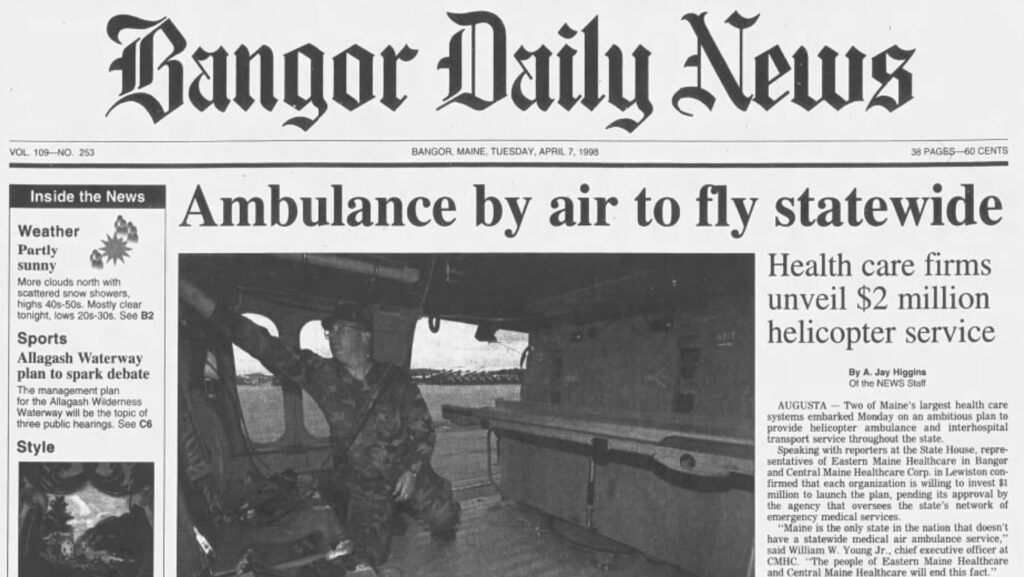
Since then, of course, Judge, along with Norm Dinerman, MD, founder and medical director of LifeFlight, and some 400 others have built an organization that is consistently ranked among the best in its class, not just nationally but internationally. In a reflective moment recently at the Waterfront Restaurant in Camden, he teared up occasionally talking about LifeFlight’s core culture. “It’s about perseverance, trust, and the gift of service, not heroics,” he says. “Do we do heroic things? Yes, every day, because in the emergency care system we show up when someone needs us.” Meeting people on what is often the worst day of their life, during vulnerable moments in which they’re asked to put their lives into the hands of total strangers requires not just technical excellence but something that’s harder to teach. “As Norm has always said, ‘If my face is the last face you see, if my hand is the last hand you hold, may we be worthy of trust.’”
Judge often describes the job that he’s had for a quarter century as taking “a handful of risk and putting it in your pocket. You own that risk until you pass it on at the end of your shift.” The idea of putting that weight aside was, in a way, hard to let go of, but he doesn’t plan on stepping back completely. He will have more time for music though (he still plays the fiddle regularly), and for travel with his wife Susan, an artist he calls “St. Francis of Assisi- like” in her ability to connect with wild birds and animals. And he’s looking forward to having more time to write and help rebuild LifeFlight’s research group. He hasn’t had much time for either in recent years. Back in 2014 LifeFlight published a paper on airway management that won 2nd prize at an international meeting in Rome which the following year was credited as establishing a new standard of care. During COVID, that paper was cited more than a dozen times in medical journals.
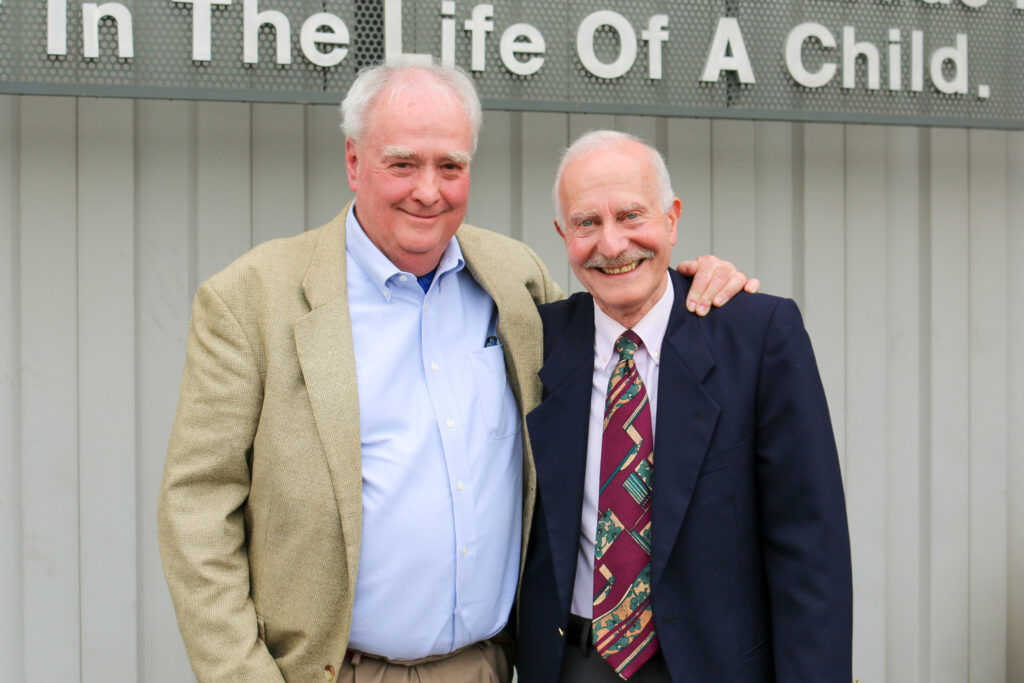
“The universe is not as random as it first appears,” Judge says. “We’re all holding onto the thread. If it’s working in the back of an ambulance, if it’s playing music on a stage, if it is framing a home — it’s all just trying to find the threads that bind us and build community.
Jesse Ellison is a freelance journalist and contributing editor at Down East Magazine based in midcoast Maine.
